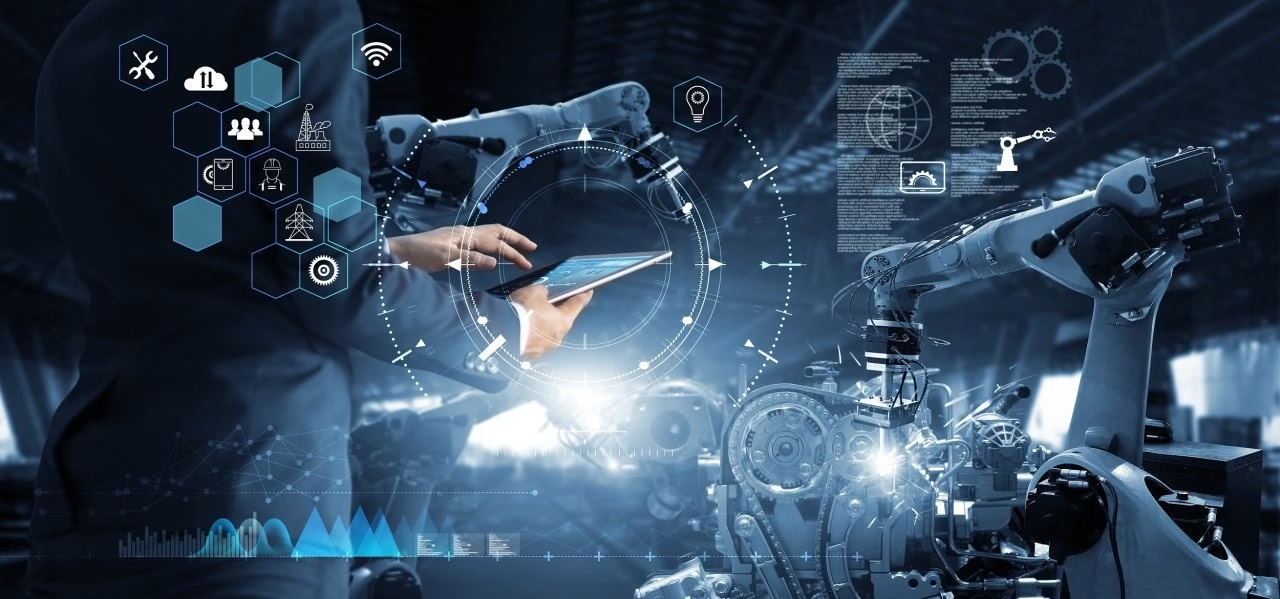Introduction
Artificial Intelligence (AI) and automation are transforming business operations across industries. Companies leverage these technologies to enhance efficiency, reduce costs, and improve decision-making processes. This article explores the profound impact of AI and automation on modern business practices, covering key sectors, benefits, challenges, and future trends.
Understanding AI and Automation
What is Artificial Intelligence (AI)?
AI refers to computer systems capable of performing tasks that traditionally require human intelligence, such as:
- Machine learning (ML)
- Natural language processing (NLP)
- Computer vision
- Robotics
- Expert systems
What is Automation?
Automation involves using technology to perform tasks with minimal human intervention. It includes:
- Robotic Process Automation (RPA)
- Workflow automation
- Industrial automation
- Software automation
Impact on Different Business Sectors
1. Manufacturing Industry
AI-driven automation in manufacturing enhances productivity through:
- Predictive maintenance: AI predicts equipment failures, reducing downtime.
- Robotics: AI-powered robots perform repetitive tasks with precision.
- Quality control: AI identifies defects in products using computer vision.
Case Study: AI in Automotive Manufacturing
Many automotive companies utilize AI to enhance production efficiency. AI-powered robots handle assembly line tasks, while machine learning algorithms predict equipment maintenance needs, reducing unplanned downtime.
2. Healthcare Sector
AI revolutionizes healthcare through:
- Medical diagnostics: AI analyzes medical images and predicts diseases.
- Personalized treatment: AI tailors treatment plans based on patient data.
- Administrative automation: Automating medical record management reduces paperwork.
AI in Drug Discovery
Pharmaceutical companies use AI to accelerate drug development by analyzing vast datasets and identifying potential compounds faster than traditional research methods.
3. Retail and E-commerce
AI is transforming the retail landscape with:
- Chatbots and virtual assistants: Enhancing customer service.
- Inventory management: Predicting stock levels and demand trends.
- Personalized marketing: AI analyzes customer behavior to suggest relevant products.
AI-Driven Personalization
E-commerce giants use AI-driven recommendation engines that analyze purchase history and browsing patterns to offer personalized product suggestions, increasing sales and customer satisfaction.
4. Financial Services
AI enhances financial operations through:
- Fraud detection: AI detects unusual transaction patterns.
- Algorithmic trading: AI makes data-driven investment decisions.
- Risk assessment: AI evaluates creditworthiness for loans.
AI in Banking
Banks employ AI-powered chatbots to assist customers with transactions, while machine learning models detect fraudulent activities by analyzing transaction patterns in real time.
5. Human Resources and Recruitment
AI streamlines HR operations by:
- Automated resume screening: AI filters suitable candidates.
- Employee engagement: AI-driven chatbots provide HR support.
- Workforce analytics: AI predicts attrition and employee performance.
AI-Powered Employee Onboarding
Companies use AI-driven platforms to automate onboarding processes, including document verification, training schedules, and employee feedback systems.
Benefits of AI and Automation in Business
Increased Efficiency and Productivity
- Reducing manual efforts
- Faster task completion
- Minimizing human errors
Cost Reduction
- Lower operational costs
- Reduced labor dependency
- Optimized resource utilization
Enhanced Decision-Making
- AI-driven insights and analytics
- Predictive analysis for market trends
- Real-time data processing
Improved Customer Experience
- Personalized recommendations
- 24/7 chatbot support
- Faster response times
Scalability and Business Growth
- AI adapts to market changes
- Expands business capabilities
- Enhances product innovation
Challenges of AI and Automation
High Implementation Costs
- Initial investment in AI systems
- Infrastructure and training expenses
Workforce Displacement
- Job loss concerns
- Need for workforce reskilling
Data Privacy and Security Risks
- Handling sensitive customer data
- Cybersecurity threats
Ethical and Regulatory Issues
- Bias in AI decision-making
- Compliance with regulations
Future Trends in AI and Automation
Hyperautomation
- Combining AI, ML, and RPA for advanced automation
AI-Driven Decision-Making
- AI assisting executives in strategic decisions
Conversational AI
- Advanced chatbots and virtual assistants
AI-Powered Cybersecurity
- AI monitoring and preventing cyber threats
AI in Supply Chain and Logistics
- AI-driven demand forecasting
- Autonomous warehouse management
The Role of Quantum Computing in AI
- Faster AI model training
- Enhanced problem-solving capabilities
Conclusion
AI and automation are revolutionizing business operations by enhancing efficiency, reducing costs, and improving decision-making. While challenges exist, the benefits far outweigh the risks. Organizations must embrace these technologies to stay competitive in the rapidly evolving digital landscape.
